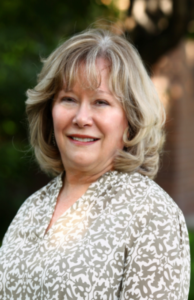BY SHAWNA WASKO
 Many people I work with in my caregiver support group and my family struggle with communicating with a loved one with Alzheimer’s disease (AD). Me included. We fear visiting our loved one because we seem to agitate the loved one, or simply struggle with communicating with them. This results in less visits with a loved one in a facility, or huge caregiver stress for those living with their loved one with AD.
Many people I work with in my caregiver support group and my family struggle with communicating with a loved one with Alzheimer’s disease (AD). Me included. We fear visiting our loved one because we seem to agitate the loved one, or simply struggle with communicating with them. This results in less visits with a loved one in a facility, or huge caregiver stress for those living with their loved one with AD.
I recently watched a video on mmLearn.org, by Diane Waugh, R.N., titled, How to Talk to Someone with Dementia, Alzheimer’s or Memory Loss that was posted May 28, 2019. It is a wonderful training blog on having “successful” conversations with someone with AD. One of the first things Waugh teaches us is to not ask a person with short-term memory loss a short-term memory question. Asking someone with AD what they had for breakfast, did their sister visit them yesterday and, especially, “Do you remember…” will only agitate and confuse your loved one, resulting in an uncomfortable interaction for both of you.
A part of our brain called the hippocampus is involved in the formation of new memories. When you learn something new (what you had for breakfast), the hippocampus normally takes in the information and sends it to the long-term memory parts of your brain. The hippocampus is usually the first part of the brain damaged by Alzheimer’s disease. Basically, the patient is unable to remember new information, like what they had for breakfast.
Waugh explains that to have a “successful” visit with a loved one with AD we must ask long-term memory questions. Long-term memory questions help you and your loved one to have meaningful conversations. The long-term memory portion of the brain is deep in our brain and remains intact longer than the hippocampus.
So, I set off to the Hospice Home in Jerome with my newfound information and visited with my mom, who has AD, last Friday. I found my mother was lethargic and bored when I arrived. I asked her, “Mom, why did we never figure out how Grandma Crumbliss made her wonderful fried chicken?” Mom’s face lit up and she smiled at me and said, “I watched her make it a thousand times growing up and never could duplicate what she did!” Mom proceeded to talk about her mother for 15 minutes with me.
At the age of six I was operated on for double bilateral hernias. To all the doctors’ knowledge in our area, I was the first girl born in Idaho with them. Old Doc Peterson invented a surgery for me, but had to wait for me to be older to operate. I was always in reach of my mother in case one of my hernias “popped out.” If the hernia ‘strangulated,’ I could possibly get gangrene in about an hour. My mother would lay me down and massage them back into place. The school refused to take me into first grade until the hernias were repaired.
It is interesting, as I write this, that my surgery was done on the fourth floor of the old hospital here in Twin Falls. This location is now the County West Building and my office is on the fourth floor. I asked my mom about my surgery when I visited her Friday, and how hard it was for her to carry me around, as I was not allowed to walk for weeks after the surgery. Mom started talking about when I woke up from my surgery, I was mad at her because she never told me it would ‘sting.’ She told me it would hurt and be sore but never that it would sting.
I told Mom I had to go to the bathroom when I woke up from surgery, and she explained how Doc Peterson had told her that only the nurse could carry me to the bathroom after my surgery, as they had to be extremely careful lifting me. Mom rang the nurse and the nurse assumed I was there because I had my tonsils out. The nurse picked me up by my arms and started pulling me off the bed. Mom said I screamed and fainted in pain. When I woke up, my classy, 98-pound, bantam-rooster mom was beating the hell out of the nurse, pulling her hair out and screaming she was going to kill the moron. Three other nurses and Doc Peterson finally pulled my mom off the battered nurse.
Mom and I laughed about this for several minutes. Mom was clear as a bell with this memory that happened over 50 years ago. This conversation led to other memories, like the one of when Doc Peterson’s wife told her that when her husband left town and the phone rang, she would drop to her knees and pray it wasn’t my mom calling about one of us kids (four all together). Go figure.
I did not say to Mom, “Do you remember my surgery?” I asked her about carrying me after my surgery. I have heard this story a million times and actually remember most of it myself. Using long-term memories to share with AD patients is wonderful. Bringing old pictures can help, too. Ask them where they lived as a child, or what school they attended when they went to the first grade. What was the boy’s name of the first person to kiss you on the mouth? Give this a try the next time you visit with an AD patient or loved one. I bet the visit will be very “successful.”
Take care,
Shawna Wasko, M.OLP Caregiver Support Group Facilitator CSI Office on Aging swasko@csi.edu



